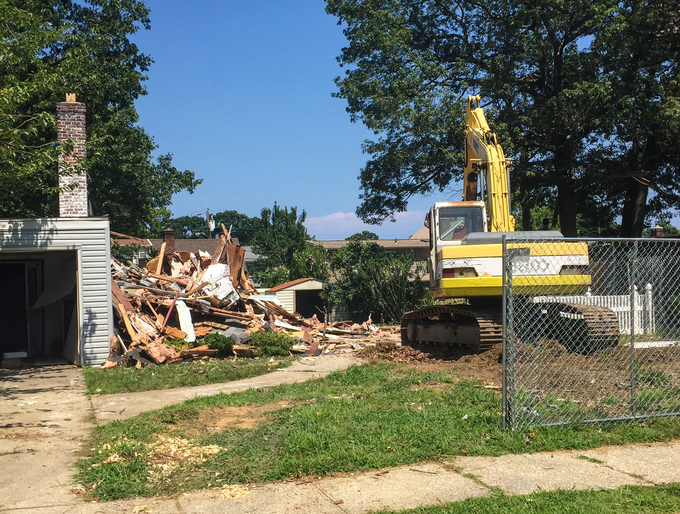
Are you interested in protecting your property rights from your local municipality in New Jersey? The answer is simple: do your due diligence by researching current land-use and zoning laws in NJ that affect your property rights.
Some property owners are unfamiliar with the local zoning laws that govern their property. And it is challenging to keep up with frequently changing state and local land use and zoning laws.
When your local government enacts policies and laws that affect your property rights, it is prudent to understand these laws. Failing to understand how local zoning laws affect your property rights may have catastrophic consequences, especially for owners of investment properties.
Don’t risk your investment – learn to protect it. An experienced zoning attorney in NJ can be a valuable resource to help protect your rights.
What Are Zoning Laws?
Zoning laws are municipal or local regulations that determine land or real property use in certain areas. They are critical for community urban planning and development. For example, zoning laws may designate specific areas for residential neighborhoods and others for commercial or industrial use. The NJ Municipal Land Use Law aims to promote economic growth and the appropriate use or development of lands, as well as support the health, safety, and general welfare of the public.
Each of New Jersey’s 564 municipalities has the power to adopt its own zoning, land use, and building laws and codes to regulate how land is used within their boundary lines. They each have a zoning or planning board, and laws can vary among municipalities. For example, a Bayonne zoning ordinance may say you can build a commercial property next to a residential neighborhood, while a North Bergen zoning ordinance prohibits it.
Zones are typically single-use, mixed-use, or a combination. If a landowner wants to use a tract of land for something different than what it is currently zoned for, they can apply for a variance to deviate from the current zoning regulation. Whether you are seeking to build a new home or develop a retail shopping center, you will encounter zoning laws and municipal ordinances.
What Are the Main Types of Zoning Laws in NJ?
The main types of zoning laws in New Jersey include:
- Residential—includes single-family homes, suburban homesteads, and other designations like houses, apartments, co-ops, and condominiums;
- Commercial—commercial zoning laws and ordinances govern most other properties like warehouses, hotels, shopping centers, and office buildings;
- Agricultural—these zoning ordinances help protect farming communities from being overtaken by residential or commercial developments, preserving land for farming;
- Historic—zoning ordinances can designate historic sites or historic districts to preserve original structures significant to U.S. history and require repairs to conform with historic construction;
- Home-based business—some home-based businesses may not be allowed in certain residential neighborhoods or have set rules for their operation;
- Industrial—industrial zoning is specific to different types of businesses, and environmental factors determine what industrial zone a business falls under; and
- Open space—these zoning laws forbid development in certain areas to preserve parks and recreational areas for residents to enjoy.
Determining what zoning laws and ordinances apply to the building, site, or structure you are developing is complicated, especially if it crosses into multiple municipalities. A savvy land use attorney can help you ensure you are following the correct laws and protecting your rights.
What Is a Zoning Variance?
In New Jersey, a zoning variance is a waiver or special permission given to a property owner the right to make changes to their property that would otherwise violate zoning laws. A variance does not change the law but gives the property owner an exception to the law’s requirements.
A property owner might need to seek a variance for a variety of reasons, such as:
- Building a new home,
- Building an addition on to an existing home or property,
- Altering the use of a property,
- Building a shed or fence, or
- Changing the occupancy of a building.
There are different variances depending on the kind of change or exception you seek, but there are two that are the most common.
C Variances
C variances or bulk variances are exceptions to a zoning ordinance’s bulk or dimensional requirements. These variances are typically used for a structure’s placement, the property’s size or shape, or the configuration of a building or property. They are often requested for single-family homes, additions, or adding structures to a property.
D Variances
D variances or use variances are sought to permit a use, height, or type of building prohibited by the zoning ordinance or law. There are six different use or D variances.
If the property’s intended construction or use does not comply with the zoning laws, you will likely need to apply for a variance.
How to Get a Variance?
The process for obtaining a zoning ordinance varies depending on the municipality in which the property is located. Be sure to check the rules and processes for the specific municipality. Generally, you begin the process by conducting a feasibility study. The study evaluates your ability to implement the change you are requesting and assesses its impact on your community, environment, and local development plans.
You then need to complete an application describing the change you are seeking. The application must include site plans, a description of the intended use or change, and your reason for the requested variance.
Once the zoning or planning board receives your application, you may have to attend public hearings or negotiations. At a public hearing, you present your case to the board. The board then takes time to deliberate and votes to approve or deny your application. The board’s decision is binding on all future property owners, occupants, or tenants.
You may appeal the decision to the Superior Court if your variance is denied.
Working with a land use attorney can help you understand what type of variance to request, navigate the process, complete the application, prepare for a public hearing, present your case, and manage any litigation.
Weiner Law Group Can Help You Navigate New Jersey Zoning and Land Use Laws
New Jersey land use and zoning laws are intricate and often complex. Keeping up with constantly evolving laws for various municipalities can be challenging. Weiner Law Group has a robust team of attorneys who are well-versed in the nuances of New Jersey land use, real estate, development, and zoning law. They keep their fingers on the pulse of the zoning and planning boards to ensure they are up-to-date on evolving laws and policies that could impact their clients’ real estate and property development goals. We offer a wide range of real estate services to a variety of clients.
Since 1988, Weiner Law Group has helped thousands of clients achieve their real estate and development goals throughout New Jersey. Our real estate team prides itself on building strong relationships with each client and creating innovative, tailored, and timely strategies. Contact Weiner Law Group today to learn how we can make your real estate project a reality.

Glenn C. Kienz has over 35 years of complex litigation experience in land use, zoning, redevelopment, and environmental law. He regularly represents public entities, developers, and citizens in real estate, zoning, and land use matters for industrial, commercial, and residential developments. He has appeared before more than 150 different agencies and tried cases before state and federal judges.
Mr. Kienz is also a condemnation commissioner, Associate Counsel to the NJ Planning Officials, and Counsel to the NJ Society of Municipal Engineers.
